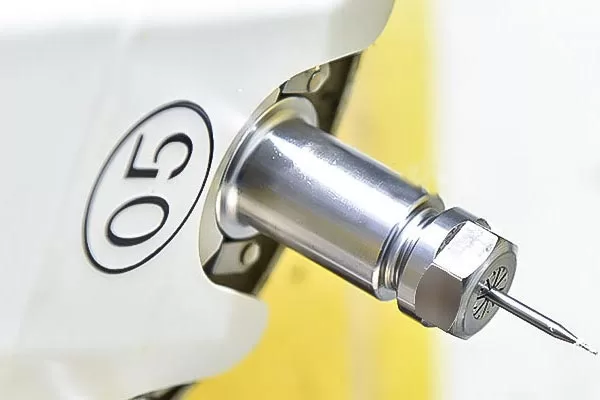The CNC machine is a marvel of modern engineering technology. It’s an essential tool in prototyping projects and mass-production environments. One of the more esoteric components of the CNC machine is the “work holding fixture.”
What is a CNC Machining Fixture?
The CNC fixture is a tooling component designed to position and stabilize the workpiece during machining. This device effectively centers, secures, supports, or mounts workpieces, ensuring interchangeability and conformability during manufacturing.
CNC fixtures don’t guide cutting tools. They merely provide the function of keeping the workpiece in place. The tool and the workpiece move together in CNC fixtures, whereas with a jig, the tool remains stationary.
What are the Applications & Importance of CNC Fixtures?
The rigidity of the workpiece is critical during the machining process. If the workpiece isn’t securely held in place and cannot move, it results in vibrations, reducing the accuracy of the finished components.
The CNC machine, tool, machined component, and CNC fixture act as a single chain of rigidity and stiffness. If any of these elements aren’t calibrated or set up properly, it leads to dysfunctional operations.
If the component moves during machining, retaining the tolerances required for the project is impossible. Even slight movement can create inaccurate results.
Attempting to machine parts with ineffective setup of the CNC machine, fixture, and components results in inaccuracies and loss of precision.
CNC fixtures are also a critical safety feature of the machine. If the fixture is loose and the machined component slips, it could damage the machine, causing expensive repairs. Or a tool might fly away during use and hit someone on the workshop floor.
The fixture must create enough space for the tools to work effectively and efficiently. If it knocks against the tool, it ruins the workpiece.

CNC machining services
What are the Types of CNC Machining Fixtures?
It might surprise you to learn there are several different types of CNC fixtures. There are several models, each serving different machining functions. Let’s unpack the type of CNC fixtures and the capabilities of each.
Tooling Fixtures
Milling Fixtures
This CNC machining process cuts material away from the workpiece. A computerized system cuts the workpiece to CAD drawing specifications input into the device. CNC milling fixtures are simple to set up and use.
Turning Fixtures
This CNC operation removes material from a workpiece while it rotates around a single axis. The CNC fixture keeps the workpiece in place during turning, ensuring it doesn’t slip between centers.
Boring Fixtures
This CNC machining process involves removing material from a pre-drilled workpiece. The CNC boring fixtures ensure accurate and efficient boring compared to hand-drilling.
Drilling Fixtures
Drilling fixtures are popular in machine shops. Like boring, it provides much cleaner, more accurate, and more precise drilling.
Grinding Fixtures
These fixtures secure the workpiece and tools during CNC grinding applications.
Specialized CNC Fixtures
Specialized fixtures are ideal for securing custom workpieces. When used in combination with the workpiece, they offer superior stability and the tightest tolerances. They’re also convenient to use, saving on the setup time of the CNC machine.
Universal Fixtures
A universal fixture fits any workpiece. It has excellent adjustability to grasp any material, shape, or form. These fixtures have a wide scope of application and are one of the more common fixtures used in CNC manufacturing practices.
Combination Fixtures
Combination CNC fixtures are available in various shapes and sizes to suit project requirements. These fixtures are the best choice for the towards-handling of workpieces of different shapes and sizes based on the CNC tools.
Modular Fixtures
The modular CNC fixture allows the technician to reconfigure and reconstruct to provide a secure fit to any workpiece. They feature interchangeable components making them ideal for many solutions. They’re also another popular fixture found in most CNC workshops. Modular fixtures offer a flexible manufacturing process.
Assembled Fixtures
These fixtures cater to the needs of custom workpieces using special assembly. Depending on the project requirements, the machinist can add or remove them as needed.
In Closing
The workpiece is a critical component of the CNC machining process. When securing the workpiece properly, you get the desired results. Workpiece fixtures are available in different types to suit your project requirements. Choose the model that suits your needs or build an assembly fixture or custom fixture for your CNC machine and workpiece.
